
The Enchanting Emilia-Romagna Riviera
The Emilia-Romagna Riviera, located along the Adriatic coast of Italy, is a hidden gem for beach lovers and culture enthusiasts alike. Known for its long stretches of golden sand and clear blue waters, this region offers a perfect blend of relaxation and adventure. From lively beach towns like Rimini and Riccione to the quieter coastal villages, there's something here for every kind of traveler. Beyond its stunning beaches, the Emilia-Romagna Riviera is rich in history and culture. Visitors can explore ancient Roman ruins, medieval castles, and charming old towns. The region is also renowned for its culinary delights. Enjoy fresh seafood, homemade pasta, and the famous balsamic vinegar that hails from this area. Don't miss the chance to sample local wines and cheeses, which are integral to the regional cuisine. Whether you're looking to sunbathe, explore historic sites, or indulge in delicious food, the Emilia-Romagna Riviera promises an unforgettable experience. The warm hospitality of the locals and the region's natural beauty make it an ideal destination for families, couples, and solo travelers alike.
Local tips in Emilia-Romagna Riviera
- Visit during late spring or early autumn to avoid the peak tourist season and enjoy milder weather.
- Try the local seafood dishes at a beachside trattoria for an authentic dining experience.
- Rent a bike to explore the coastal towns and enjoy scenic rides along the Adriatic coast.
- Take a day trip to the nearby city of Ravenna to see its famous Byzantine mosaics.
- Attend one of the many summer festivals, such as La Notte Rosa, for a taste of local culture and entertainment.
The Enchanting Emilia-Romagna Riviera
The Emilia-Romagna Riviera, located along the Adriatic coast of Italy, is a hidden gem for beach lovers and culture enthusiasts alike. Known for its long stretches of golden sand and clear blue waters, this region offers a perfect blend of relaxation and adventure. From lively beach towns like Rimini and Riccione to the quieter coastal villages, there's something here for every kind of traveler. Beyond its stunning beaches, the Emilia-Romagna Riviera is rich in history and culture. Visitors can explore ancient Roman ruins, medieval castles, and charming old towns. The region is also renowned for its culinary delights. Enjoy fresh seafood, homemade pasta, and the famous balsamic vinegar that hails from this area. Don't miss the chance to sample local wines and cheeses, which are integral to the regional cuisine. Whether you're looking to sunbathe, explore historic sites, or indulge in delicious food, the Emilia-Romagna Riviera promises an unforgettable experience. The warm hospitality of the locals and the region's natural beauty make it an ideal destination for families, couples, and solo travelers alike.
When is the best time to go to Emilia-Romagna Riviera?
Iconic landmarks you can’t miss
Piazza Maggiore
Discover Piazza Maggiore, the vibrant heart of Bologna, rich in history, stunning architecture, and lively cultural events.
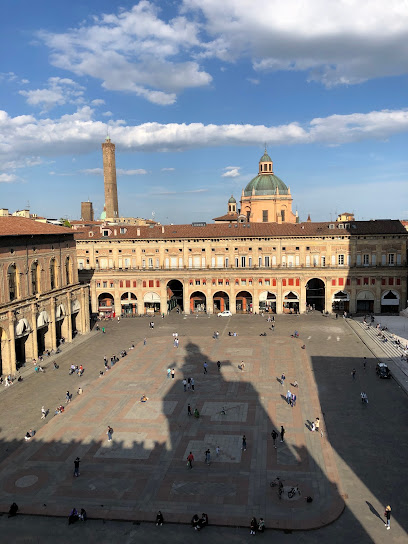
Museum Ferrari Maranello
Explore the legendary history of Ferrari at the Museum Ferrari Maranello, where passion for automotive excellence comes to life.
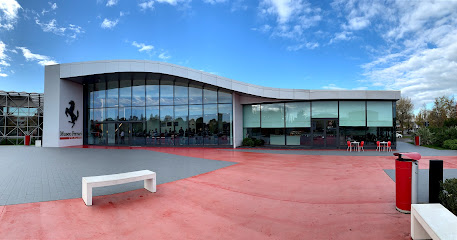
Este Castle
Discover the majestic Este Castle in Ferrara, a historical landmark offering rich heritage, stunning architecture, and immersive cultural experiences.
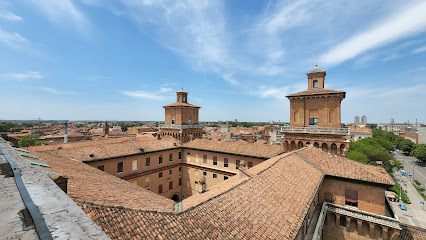
Arco di Augusto
Explore the historic Arco di Augusto in Rimini, Italy – the oldest Roman arch still standing and a symbol of ancient architectural brilliance.
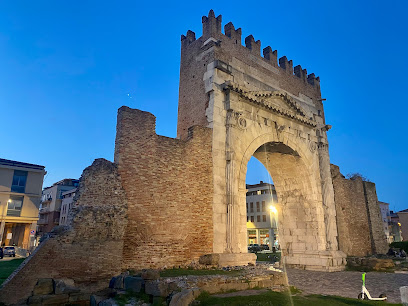
Dante's Tomb
Explore the serene beauty and profound legacy of Dante's Tomb, a historical landmark in Ravenna that celebrates Italy's literary heritage.
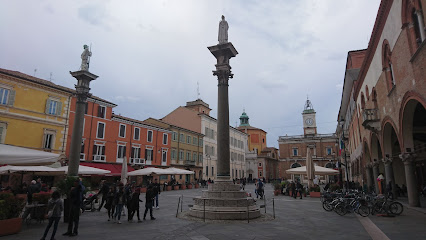
Rocca Sanvitale
Discover the stunning Rocca Sanvitale in Fontanellato, a captivating castle combining rich history with vibrant art collections.
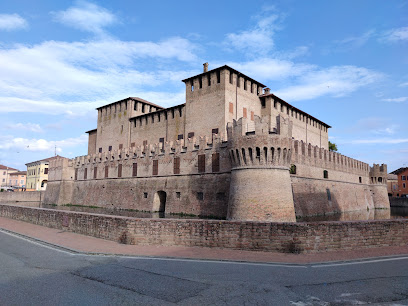
Rocchetta Mattei
Explore Rocchetta Mattei, a stunning castle and museum in Grizzana Morandi, offering a blend of history, architecture, and breathtaking views.
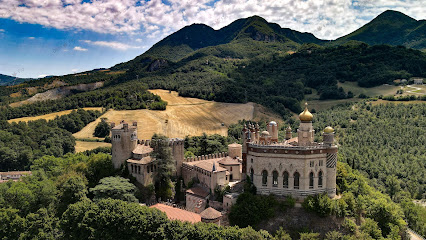
Marinando. In barca tra le arcate del ponte
Experience the breathtaking beauty and rich history of Rimini's Ponte di Tiberio with Marinando's scenic boat rides.
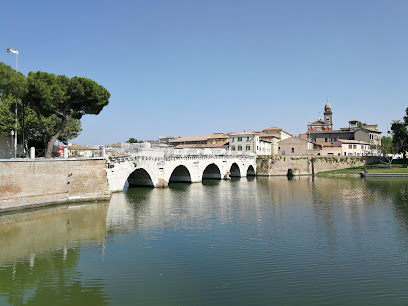
Fortress of San Leo
Discover the breathtaking Fortress of San Leo, a historical gem in Italy, offering stunning views, rich history, and captivating museum exhibits.
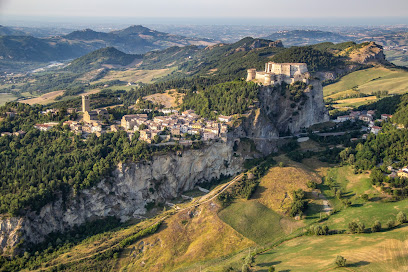
Fontana del Nettuno
Discover the enchanting Fontana del Nettuno, a stunning historical landmark and symbol of Bologna's rich cultural heritage in the heart of the city.
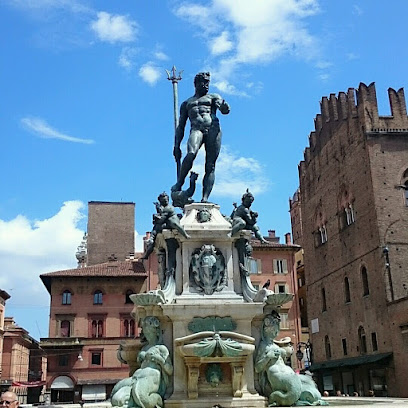
Domus del Chirurgo
Discover the ancient Roman past at Domus del Chirurgo, an archaeological site in Rimini known for its exquisite mosaics and historical significance.
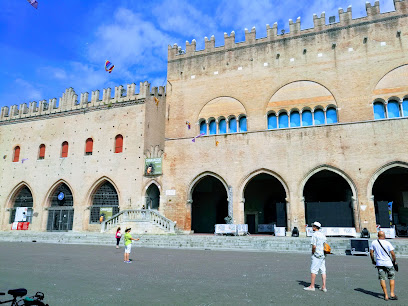
Ayrton Senna monument
Visit the Ayrton Senna Monument in Imola to honor the legacy of a racing legend amidst breathtaking scenery and rich motorsport history.
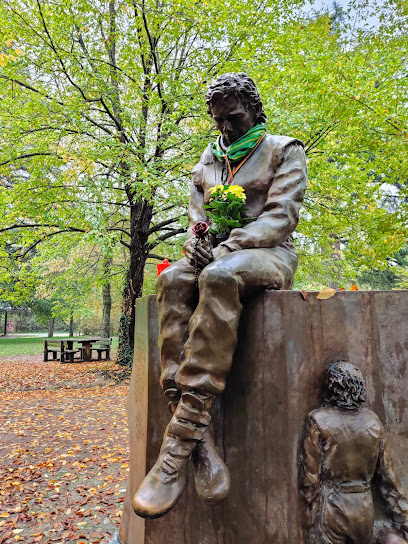
Monumento a Marco Pantani
Experience the legacy of Marco Pantani at his iconic monument in Cesenatico, a must-visit for cycling fans and tourists alike.
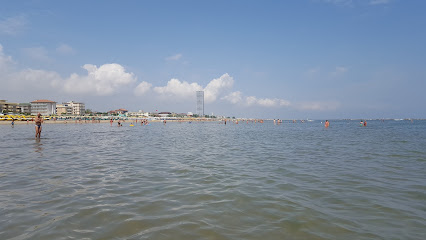
Piazza Spose Dei Marinai
Explore the maritime heritage at Piazza Spose Dei Marinai in Cesenatico, where history, culture, and coastal charm come together.
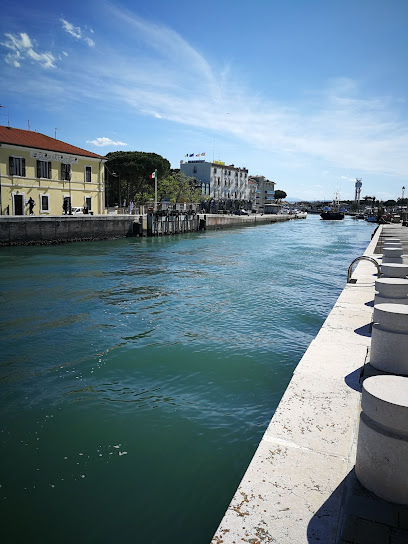
Old Port of Classe - Parco Archeologico di Classe
Explore the Old Port of Classe, an open-air museum in Ravenna, uncovering ancient Roman maritime history amidst beautiful park landscapes.
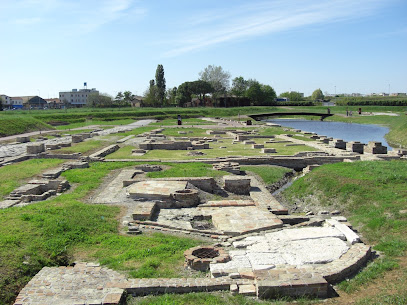
Unmissable attractions to see
Piazza Maggiore
Discover the vibrant heart of Bologna at Piazza Maggiore, a stunning square rich in history, culture, and local charm.
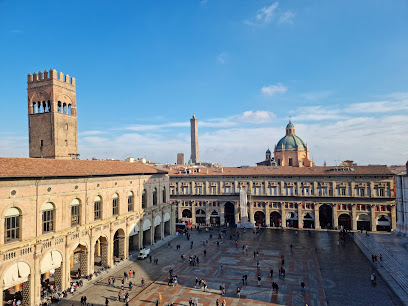
Este Castle
Explore the majestic Este Castle in Ferrara, a historical gem featuring stunning architecture, rich culture, and beautiful gardens.
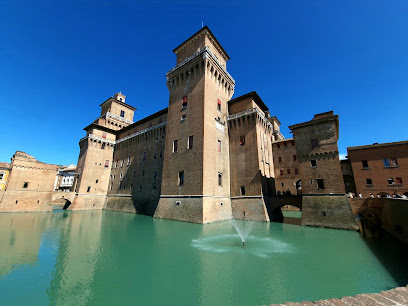
Italia in Miniatura
Explore the beauty of Italy in miniature at Italia in Miniatura, where iconic landmarks come to life in an immersive theme park experience.
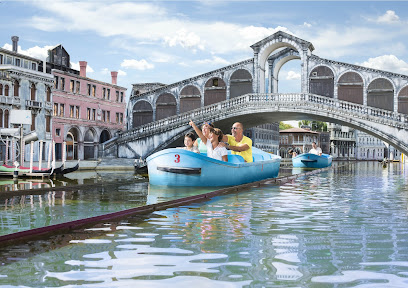
Lamborghini Automobile Museum
Explore the iconic Lamborghini Automobile Museum and dive into the legacy of one of the most prestigious car manufacturers in the world.
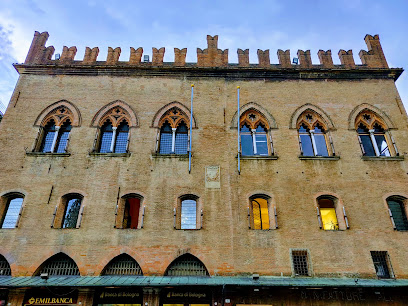
Rocchetta Mattei
Discover the enchanting Rocchetta Mattei, a unique castle and museum in Grizzana Morandi, blending history, art, and breathtaking views in a serene setting.
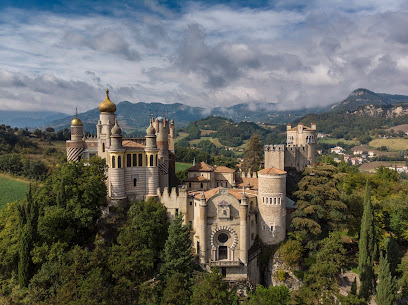
Fontana del Nettuno
Discover the stunning Fontana del Nettuno, a Renaissance masterpiece and iconic landmark in Bologna's vibrant Piazza del Nettuno, rich in history and beauty.
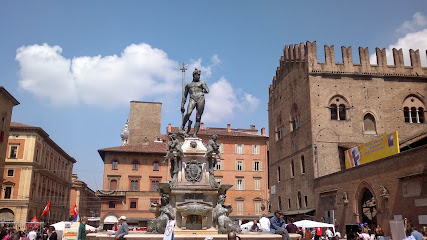
Arco Del Meloncello
Discover the beauty of Bologna at Arco Del Meloncello, a stunning historical arch that connects you to the city's rich heritage and scenic landscapes.
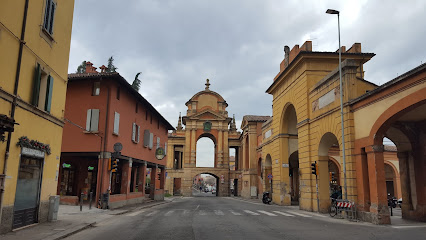
Castle of Bardi
Unveil the historical treasures and breathtaking views at the Castle of Bardi, a must-visit destination in the heart of Parma's stunning landscapes.
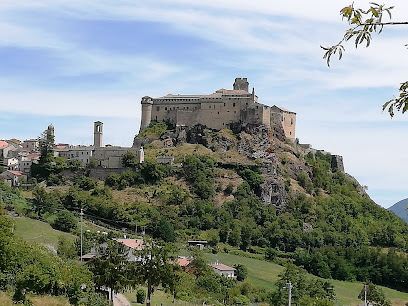
La Ruota Panoramica
Soar high above Rimini's breathtaking coastline with La Ruota Panoramica, a Ferris wheel offering stunning views and unforgettable experiences.
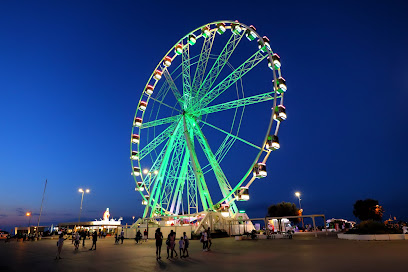
Pinacoteca Nazionale
Discover the rich artistic heritage of Italy at the Pinacoteca Nazionale, Bologna's premier art gallery showcasing masterpieces from the Renaissance to contemporary art.
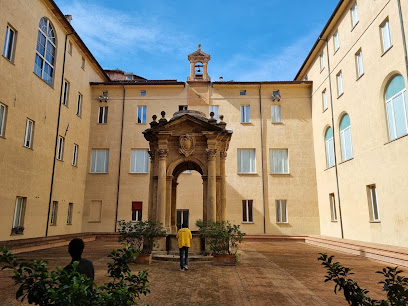
Archaeological Museum of Bologna
Explore ancient civilizations at Bologna's Archaeological Museum, home to a vast collection of artifacts from the Etruscans, Romans, and Egyptians.
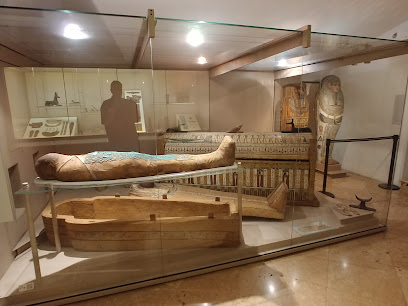
Parco Talon
Discover the natural beauty and peaceful atmosphere of Parco Talon, a premier park destination in Casalecchio di Reno, perfect for a tranquil escape.
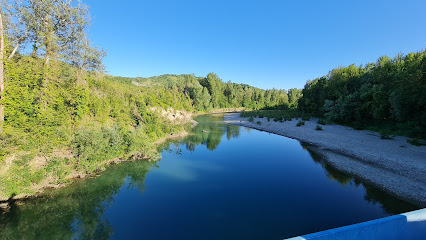
Palazzo Pallavicini
Experience the grandeur of Palazzo Pallavicini, Bologna's jewel of art and history, featuring exquisite collections and stunning architecture.
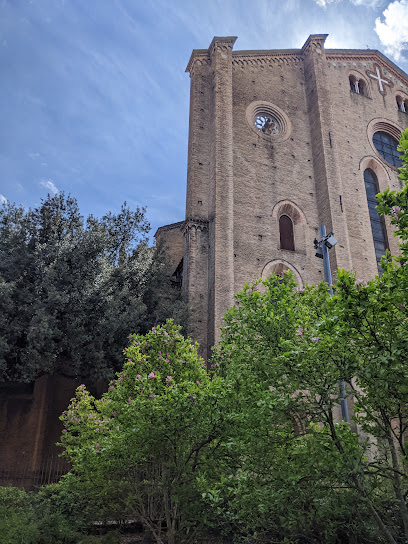
Palazzo Re Enzo
Experience the historical grandeur of Palazzo Re Enzo in Bologna, a stunning landmark rich in culture and medieval history.
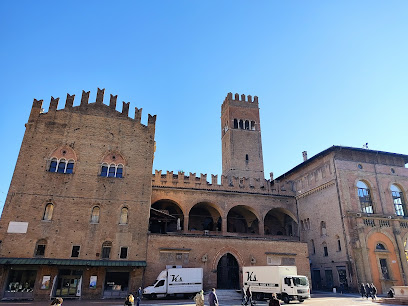
Villa Spada
Explore Villa Spada, Bologna's tranquil park, where nature and history intertwine for a serene escape in the heart of the city.
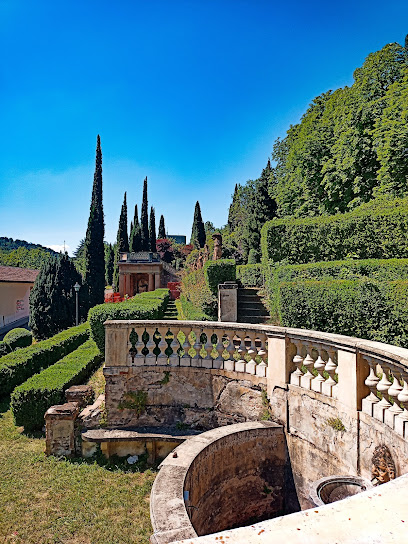
Essential places to dine
Restaurant Riviera 69 - Cesenatico
Experience authentic Italian seafood at Restaurant Riviera 69 in Cesenatico - where every dish tells a story from the Adriatic Sea.
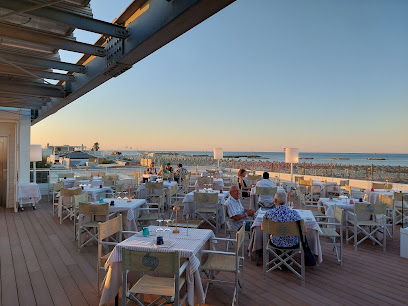
La Sangiovesa
Discover authentic Italian flavors at La Sangiovesa in Santarcangelo di Romagna, where tradition meets taste in every delightful dish.
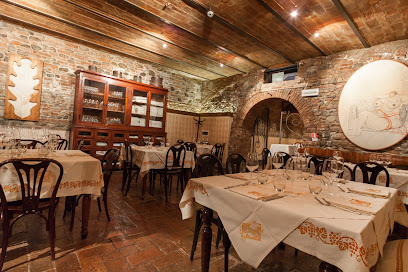
Ristorante Lazaroun
Experience authentic Italian cuisine at Ristorante Lazaroun in Santarcangelo di Romagna - where tradition meets elegance.
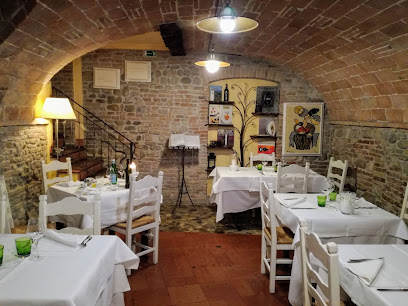
Tin Bota Ristorante e pizza
Savor authentic Italian cuisine at Tin Bota Ristorante e Pizza in Rimini - where every dish is a celebration of flavor.
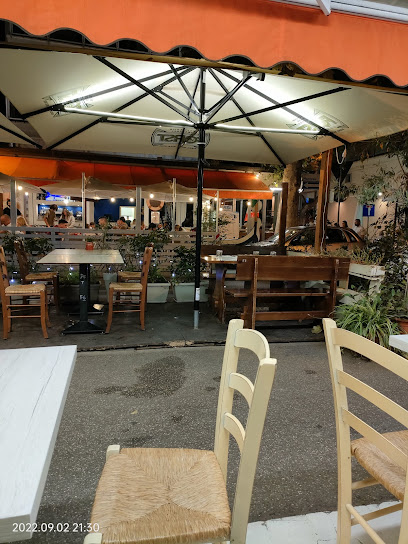
Trattoria Romagnola
Experience authentic Northern Italian cuisine at Trattoria Romagnola in Castel San Pietro Terme – where tradition meets flavor in every dish.
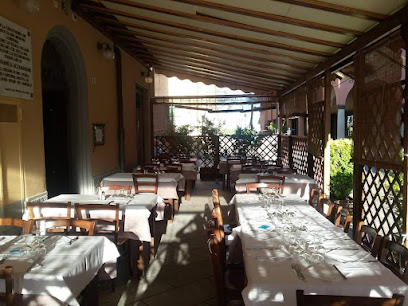
Amerigo
Experience authentic Northern Italian cuisine at Amerigo in Savigno—where tradition meets exquisite taste.
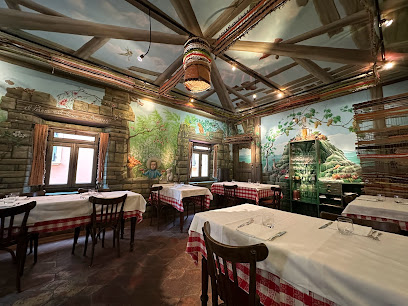
La Grotta
Experience authentic Italian cuisine at La Grotta in Brisighella - where flavor meets tradition amidst stunning landscapes.
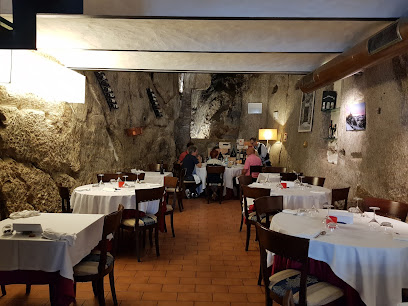
Ristorante Casa Artusi
Experience authentic Italian cuisine at Ristorante Casa Artusi in Forlimpopoli, where tradition meets modernity in every delicious dish.
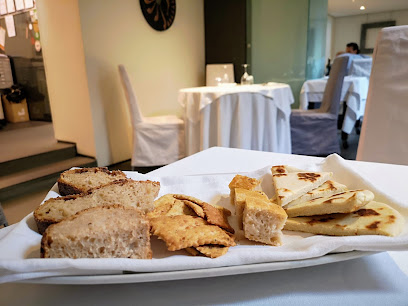
La Vecia Cantena d'la Pre' - Ca' de Sanzves
Discover authentic Italian flavors at La Vecia Cantena d'la Pre', a culinary gem in Predappio Alta offering exquisite cuisine and local wines.

Dallo Zio
Experience exquisite seafood dining at Dallo Zio in Rimini, where tradition meets innovation in Italian cuisine.
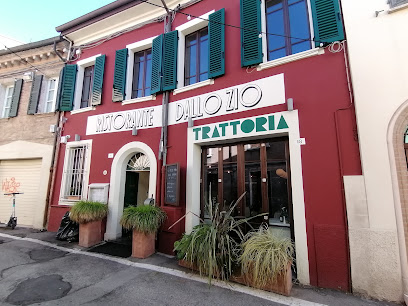
La Locanda di Bagnara
Discover La Locanda di Bagnara: A delightful fusion of authentic Italian dining, charming bar vibes, and cozy hotel comforts in the heart of Italy.
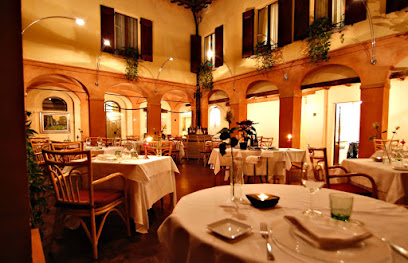
GB Restaurant
Discover exquisite Italian and seafood cuisine at GB Restaurant in Torre Pedrera, where culinary excellence meets breathtaking Adriatic views.
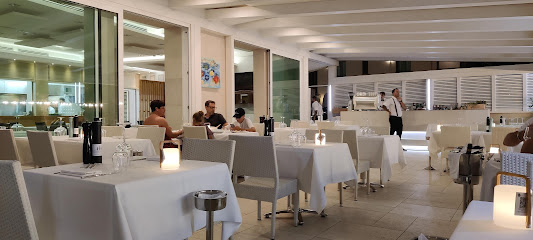
San Domenico
Experience culinary excellence at San Domenico in Imola – where tradition meets innovation in fine Italian dining.
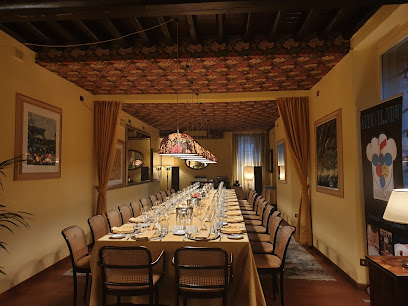
Osteria Del Tempo Perso
Experience authentic Italian cuisine at Osteria Del Tempo Perso in Ravenna—where every dish tells a story.
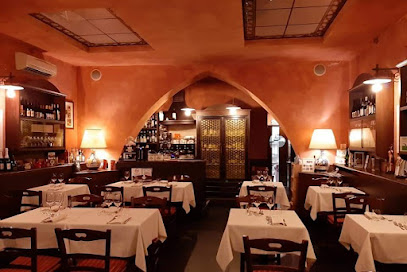
Quartopiano
Discover the authentic taste of Italy at Quartopiano in Rimini—where exquisite cuisine meets elegant ambiance.
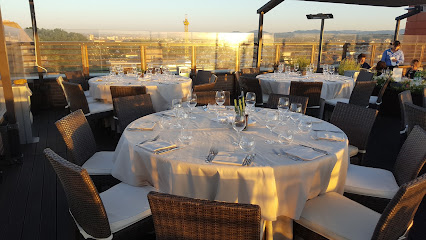
Markets, malls and hidden boutiques
Le Befane Centro Commerciale
Explore Le Befane Centro Commerciale in Rimini, your ultimate shopping destination with diverse stores, dining options, and entertainment.
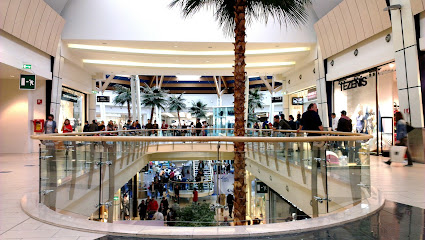
Romagna Shopping Valley
Explore Romagna Shopping Valley, a vibrant shopping mall in Savignano sul Rubicone, offering diverse stores, dining, and entertainment for an unforgettable experience.
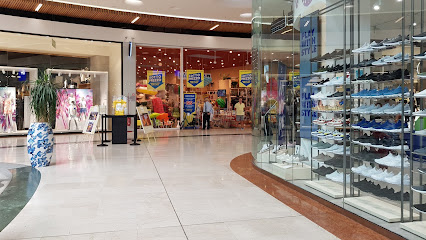
Grandemilia
Discover Grandemilia in Modena, your ultimate shopping destination featuring diverse stores, delightful dining, and community events for a memorable experience.
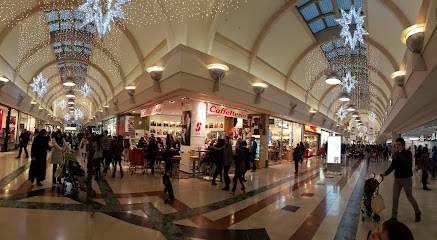
Fidenza Village
Explore Fidenza Village, a premier outlet mall in Italy, blending luxury shopping with Italian charm and exceptional dining experiences.
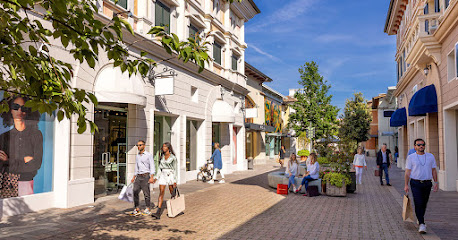
Castel Guelfo The Style Outlets
Discover amazing deals and a unique shopping experience at Castel Guelfo The Style Outlets, the top destination for fashion lovers in Italy.
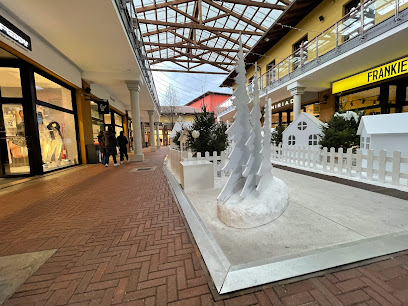
Shopville Gran Reno
Discover the vibrant shopping experience at Shopville Gran Reno, Bologna's premier shopping mall with over 150 stores and diverse dining options.
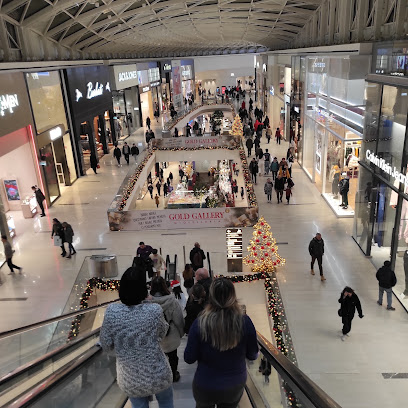
Il Castello Centro Commerciale
Discover a diverse shopping experience at Il Castello Centro Commerciale, Ferrara's go-to destination for retail, dining, and family fun.
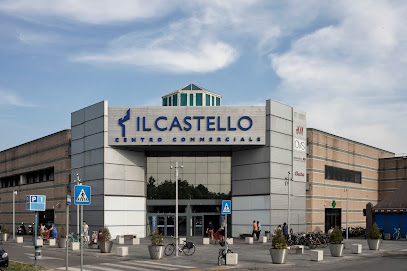
I Petali
Explore I Petali, Reggio Emilia's vibrant shopping mall, offering diverse retail, dining, and entertainment options for an unforgettable experience.
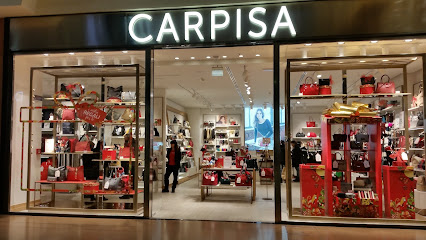
Centro Commerciale Esp
Discover the ultimate shopping experience at Centro Commerciale Esp in Ravenna, featuring diverse shops, dining options, and family-friendly amenities.
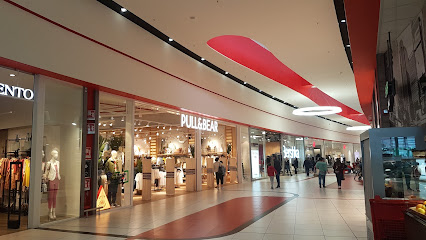
Centro Commerciale La Rotonda
Experience the best shopping, dining, and entertainment at Centro Commerciale La Rotonda in Modena, Italy - a must-visit for every traveler.
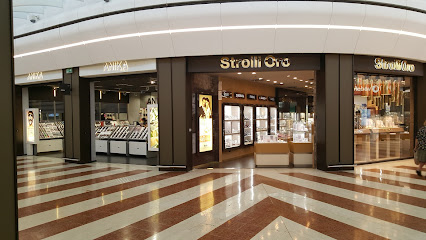
Centro Meridiana
Discover the ultimate shopping experience at Centro Meridiana, Bologna's favorite shopping mall with diverse stores and delightful dining options.
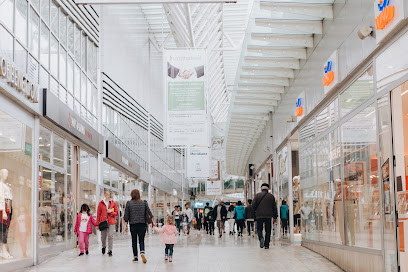
Centro Montefiore
Explore Centro Montefiore, Cesena’s vibrant shopping mall offering a diverse range of shops, dining, and entertainment options for all ages.
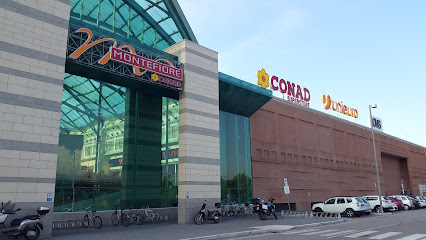
Gelateria ADLER Riccione
Indulge in artisanal gelato and delightful desserts at Gelateria ADLER, the sweet heart of Riccione's vibrant coastline.
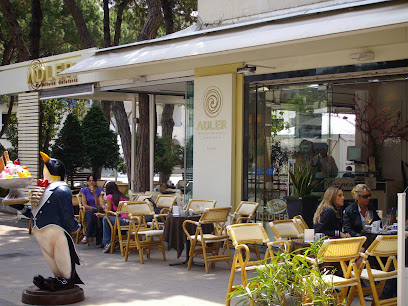
Outlet
Shop the latest fashion trends at the Calzedonia Outlet in Granarolo dell'Emilia, where style meets affordability for every traveler.
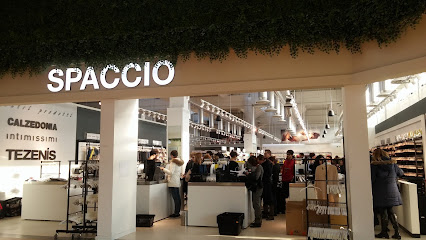
San Marino Outlet Experience
Shop designer brands at unbeatable prices at the San Marino Outlet Experience, where fashion meets affordability in a stunning setting.
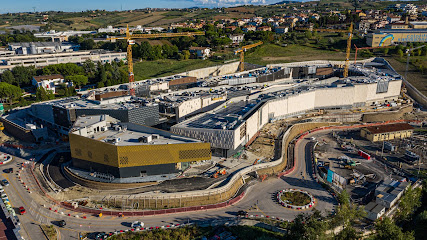
Essential bars & hidden hideouts
Darsena Sunset Bar
Experience the perfect blend of stunning sunsets, delectable small plates, and a vibrant atmosphere at Darsena Sunset Bar in Rimini.
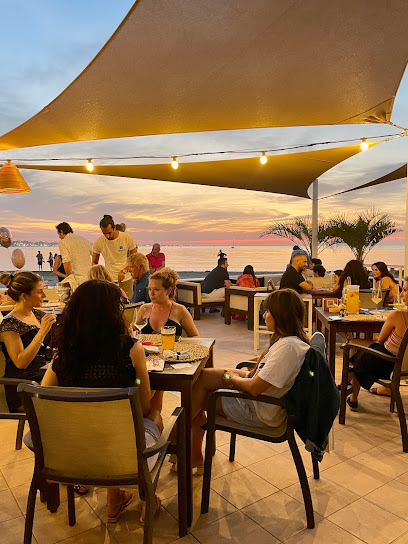
Primo Miglio di Conti Mirco
Discover the vibrant atmosphere of Primo Miglio di Conti Mirco, a must-visit bar in Rimini, offering delicious cocktails, coffee, and light meals in a cozy setting.
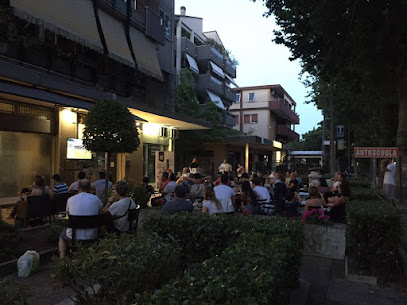
Bar Charlie Brown
Experience the vibrant flavors of Italy at Bar Charlie Brown in Rimini, where small plates and exquisite cocktails meet warm hospitality.
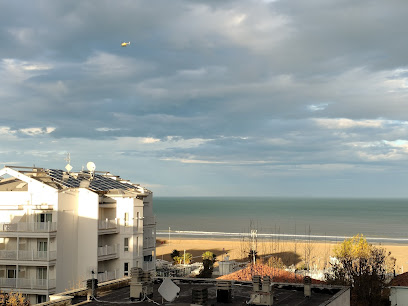
Bar Capogiro
Discover the vibrant cocktail culture of Rimini at Bar Capogiro, where innovative drinks and a lively atmosphere await you.
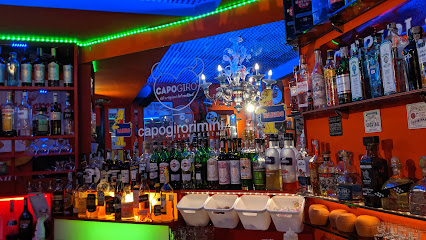
Hobo's
Experience Rimini's nightlife at Hobo's, where exquisite cocktails and live music create an unforgettable atmosphere.
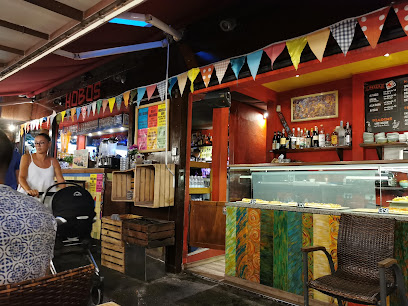
Buonaventura Baretto on Lamone
Experience the charm of Buonaventura Baretto in Casalborsetti, where seaside views meet delightful drinks and a welcoming atmosphere.
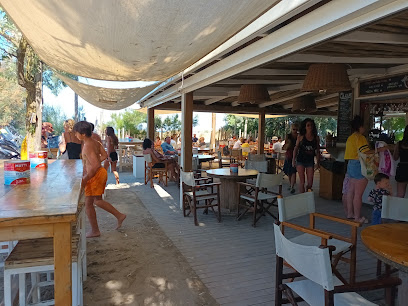
Vanquish
Experience the vibrant nightlife and exquisite cocktails at Vanquish, Milano Marittima's premier cocktail bar and nightclub destination.
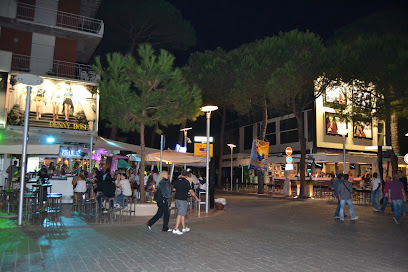
Acquadolce
Discover Acquadolce, a serene lounge in Cesena offering stunning views, delicious drinks, and a cozy atmosphere for every traveler.
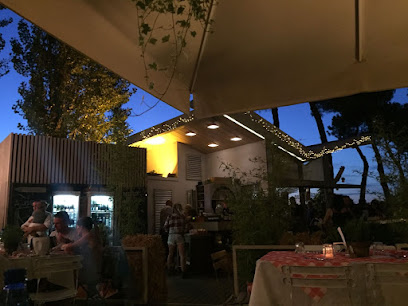
Sand Gate
Discover the vibrant atmosphere and delightful drinks at Sand Gate, a must-visit bar in Cesenatico's stunning coastal setting.
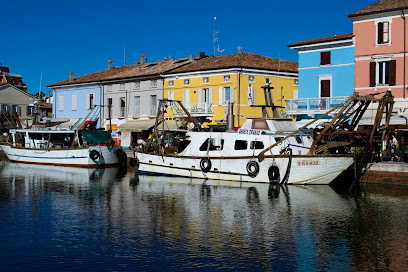
Amsterdam Pub
Discover the vibrant Amsterdam Pub in Marina di Ravenna, where American classics and lively atmosphere meet for an unforgettable dining experience.
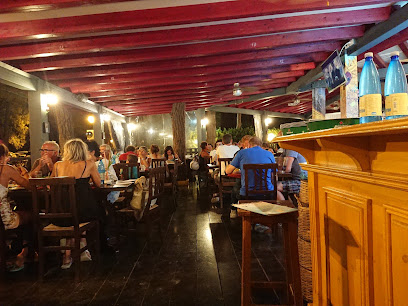
The Corner Pub
Experience the lively atmosphere and delicious cuisine at The Corner Pub, a premier gastropub in Bellaria-Igea Marina, perfect for food lovers and beer enthusiasts.
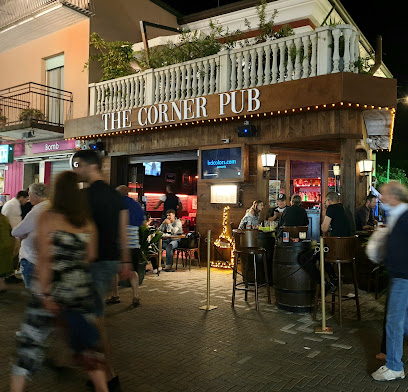
Tiburon
Discover the vibrant nightlife of Rimini at Tiburon, a cocktail bar that promises exquisite drinks and a lively atmosphere.
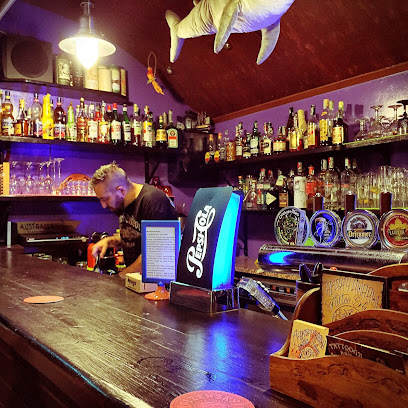
Turquoise Beach Club
Discover the lively vibe of Turquoise Beach Club, where exquisite dining meets beachside entertainment in the heart of Rimini.
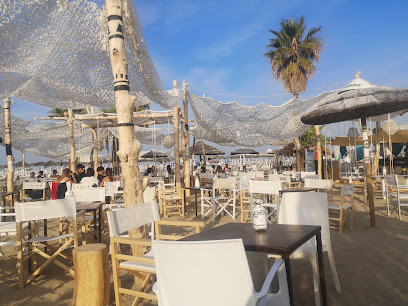
Drink Store
Experience the vibrant nightlife at the Drink Store in Cervia, where delicious drinks and fast food create the perfect atmosphere for fun and relaxation.
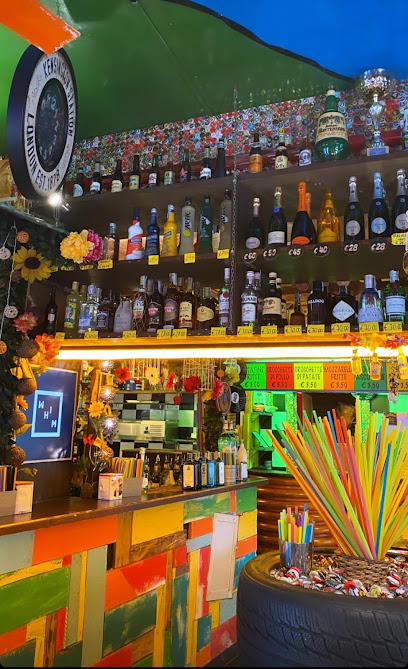
Local Phrases about Emilia-Romagna Riviera
-
- HelloCiao
[chow] - GoodbyeArrivederci
[ah-ree-veh-DEHR-chee] - YesSì
[see] - NoNo
[noh] - Please/You're welcomePer favore
[pair fah-VOH-reh] - Thank youGrazie
[GRAH-tsyeh] - Excuse me/SorryScusa
[SKOO-zah] - How are you?Come stai?
[KOH-meh stai] - Fine. And you?Bene. E tu?
[BEH-neh. eh too] - Do you speak English?Parli inglese?
[PAHR-lee een-GLEH-zeh] - I don't understandNon capisco
[nohn kah-PEES-koh]
- HelloCiao
-
- I'd like to see the menu, pleaseVorrei vedere il menu, per favore
[vohr-RAY veh-DEH-reh eel MEH-noo, pair fah-VOH-reh] - I don't eat meatNon mangio carne
[nohn MAN-joh KAR-neh] - Cheers!Salute!
[sah-LOO-teh] - I would like to pay, pleaseVorrei pagare, per favore
[vohr-RAY pah-GAH-reh, pair fah-VOH-reh]
- I'd like to see the menu, pleaseVorrei vedere il menu, per favore
-
- Help!Aiuto!
[ah-YOO-toh] - Go away!Vattene!
[vah-TEH-neh] - Call the Police!Chiama la polizia!
[KYAH-mah lah poh-LEE-tsyah] - Call a doctor!Chiama un medico!
[KYAH-mah oon meh-DEE-koh] - I'm lostMi sono perso
[mee SOH-noh PEHR-soh] - I'm illSto male
[stoh MAH-leh]
- Help!Aiuto!
-
- I'd like to buy...Vorrei comprare...
[vohr-RAY kohm-PRAH-reh] - I'm just lookingSto solo guardando
[stoh SOH-loh gwar-DAHN-doh] - How much is it?Quanto costa?
[KWAHN-toh KOH-stah] - That's too expensiveÈ troppo caro
[eh TROHP-poh KAH-roh] - Can you lower the price?Puoi abbassare il prezzo?
[PWEE ahb-bahs-SAH-reh eel PREH-tsoh]
- I'd like to buy...Vorrei comprare...
-
- What time is it?Che ora è?
[keh OH-rah eh] - It's one o'clockÈ l'una
[eh LOO-nah] - Half past (10)Sono le dieci e mezza
[SOH-noh leh dyeh-CHEE eh MEHT-sah] - MorningMattina
[maht-TEE-nah] - AfternoonPomeriggio
[poh-meh-REE-joh] - EveningSera
[SEH-rah] - YesterdayIeri
[YEH-ree] - TodayOggi
[OH-jee] - TomorrowDomani
[doh-MAH-nee] - 1Uno
[OO-noh] - 2Due
[DOO-eh] - 3Tre
[TREH] - 4Quattro
[KWAH-troh] - 5Cinque
[CHEEN-kweh] - 6Sei
[say] - 7Sette
[SEH-teh] - 8Otto
[OH-toh] - 9Nove
[NOH-veh] - 10Dieci
[DYEH-chee]
- What time is it?Che ora è?
-
- Where's a/the...?Dov'è...?
[doh-VEH] - What's the address?Qual è l'indirizzo?
[kwahl eh leen-DEER-eet-tsaw] - Can you show me (on the map)?Puoi mostrarmi (nella mappa)?
[PWEE mohs-TAHR-mee (NEH-lah MAH-pah)] - When's the next (bus)?Quando è il prossimo (autobus)?
[KWAHN-doh eh eel PROHS-shee-moh (ow-TOH-boos)] - A ticket (to ....)Un biglietto (per ....)
[oon bee-LYET-toh (pair)]
- Where's a/the...?Dov'è...?
History of Emilia-Romagna Riviera
-
The Emilia-Romagna Riviera's history dates back to ancient Roman times when the region was known as 'Aemilia'. The Via Aemilia, a major Roman road constructed in 187 BCE, connected this area to the rest of Italy, boosting trade and the movement of people. Roman ruins and artifacts can still be found in cities like Rimini, where the Arch of Augustus and the Tiberius Bridge stand as testaments to the grandeur of Roman engineering.
-
During the medieval period, the Emilia-Romagna Riviera was influenced by the powerful Maritime Republics of Italy, particularly Venice and Genoa. The coastal towns, including Ravenna, rose to prominence due to their strategic locations and flourishing maritime trade. Ravenna, once the capital of the Western Roman Empire, became an important cultural and political center in this era.
-
The Renaissance period saw the Emilia-Romagna Riviera transform into a hub of art and culture. Cities like Ferrara and Bologna attracted renowned artists, scholars, and architects. Este family in Ferrara commissioned works from the likes of Piero della Francesca and Titian. The region's coastal towns benefitted from this cultural flourishing, with splendid architecture and artistic heritage still visible today.
-
In the late 18th and early 19th centuries, the Emilia-Romagna Riviera was significantly impacted by Napoleon Bonaparte's campaigns. The region became part of the Cisalpine Republic and later the Italian Republic under French control. This period brought administrative changes and modernization, influencing the development of the towns along the Riviera.
-
The mid-19th century was a tumultuous time as the Emilia-Romagna Riviera played a role in the Risorgimento, the movement for Italian unification. Figures like Giuseppe Garibaldi passed through these lands, rallying support for a unified Italy. This period saw the region gradually integrated into the newly formed Kingdom of Italy by 1861, marking a significant shift in its political landscape.
-
The Emilia-Romagna Riviera, like much of Italy, suffered during World War II. The region was a battleground during the Gothic Line campaign in 1944-45, leading to significant destruction. Post-war reconstruction efforts in the 1950s and 60s revitalized the area, transforming it into a popular tourist destination. The resilience and spirit of the local communities played a crucial role in this recovery.
-
From the 1960s onwards, the Emilia-Romagna Riviera experienced a tourism boom. The picturesque beaches, vibrant nightlife, and rich cultural heritage attracted visitors from all over the world. Cities like Rimini and Riccione became synonymous with summer holidays, with their modern amenities and historic charm offering a unique blend for tourists. This period marked the Riviera's establishment as a premier holiday destination in Italy.
Emilia-Romagna Riviera Essentials
-
The Emilia-Romagna Riviera is accessible via several major transportation hubs. The nearest international airports are Bologna Guglielmo Marconi Airport (BLQ) and Federico Fellini International Airport (RMI) in Rimini. From these airports, you can take a train, bus, or taxi to reach coastal towns like Rimini, Ravenna, and Cattolica. High-speed trains (Frecciarossa and Italo) connect Bologna to other major Italian cities, making it convenient for international travelers. Additionally, many European cities offer direct flights to these airports.
-
The Emilia-Romagna Riviera is well-connected by an efficient public transportation system. Trains are a popular choice for travel between coastal towns, with frequent services provided by Trenitalia. Local buses run by agencies like Start Romagna offer convenient routes within towns and to nearby attractions. Taxis and ride-sharing services like Uber are available but can be more expensive. Renting a car is a good option if you plan to explore the countryside or visit multiple towns at your own pace. Biking is also popular, especially in the flat coastal areas.
-
The official currency in Italy is the Euro (EUR). Credit and debit cards are widely accepted in hotels, restaurants, and shops. However, it is advisable to carry some cash, especially when visiting smaller establishments or local markets. ATMs are plentiful in most towns, and major banks offer currency exchange services. Keep in mind that some smaller shops and cafes might have a minimum amount for card transactions.
-
The Emilia-Romagna Riviera is generally safe for tourists. However, as with any tourist destination, it is important to take standard precautions. Petty crimes like pickpocketing can occur, especially in crowded areas such as train stations and popular tourist spots. Rimini, in particular, has areas where tourists should be cautious at night, especially near the train station and some beachfront areas. Always keep an eye on your belongings and avoid poorly lit areas after dark.
-
In case of an emergency, dial 112, the European emergency number, for immediate assistance. Emergency services include police, fire brigade, and medical help. Major towns have hospitals and clinics, and pharmacies are widely available for minor health issues. It is advisable to have travel insurance that covers medical emergencies. Some hospitals have English-speaking staff, but it is useful to know basic Italian phrases or have a translation app handy.
-
Fashion: Do dress stylishly and neatly, as Italians take pride in their appearance. Avoid overly casual or revealing attire, especially in religious sites. Religion: Do respect local customs and traditions. When visiting churches, cover your shoulders and knees. Public Transport: Do validate your ticket before boarding trains and buses. Don't speak loudly or disturb others. Greetings: Do greet people with a 'Buongiorno' (Good morning) or 'Buonasera' (Good evening). A handshake is common among acquaintances. Eating & Drinking: Do try local specialties and wines. Don't rush through meals; dining is a leisurely activity in Italy.
-
To experience Emilia-Romagna Riviera like a local, visit the traditional food markets where you can find fresh produce, cheeses, and cured meats. Explore the lesser-known towns like Cesenatico for its charming canals and historic port. Attend local festivals and events, such as the 'Notte Rosa' (Pink Night) in Rimini, which features music, performances, and fireworks. Engage with locals and try to learn a few Italian phrases; they appreciate the effort and it can enhance your travel experience. Don’t miss out on trying the region’s famed dishes like piadina, tagliatelle al ragù, and seafood specialties.
Trending Landmarks in Emilia-Romagna Riviera
-
Piazza Maggiore
-
Museum Ferrari Maranello
-
Este Castle
-
Arco di Augusto
-
Dante's Tomb
-
Rocca Sanvitale
-
Rocchetta Mattei
-
Marinando. In barca tra le arcate del ponte
-
Fortress of San Leo
-
Fontana del Nettuno
-
Domus del Chirurgo
-
Ayrton Senna monument
-
Monumento a Marco Pantani
-
Piazza Spose Dei Marinai
-
Old Port of Classe - Parco Archeologico di Classe
Nearby Cities to Emilia-Romagna Riviera
-
Things To Do in Parma
-
Things To Do in Bologna
-
Things To Do in Lucca
-
Things To Do in Cinque Terre
-
Things To Do in Pisa
-
Things To Do in Florence
-
Things To Do in Verona
-
Things To Do in San Gimignano
-
Things To Do in Ravenna
-
Things To Do in Genoa
-
Things To Do in Siena
-
Things To Do in Bergamo
-
Things To Do in Milan
-
Things To Do in Arezzo
-
Things To Do in Acquaviva













